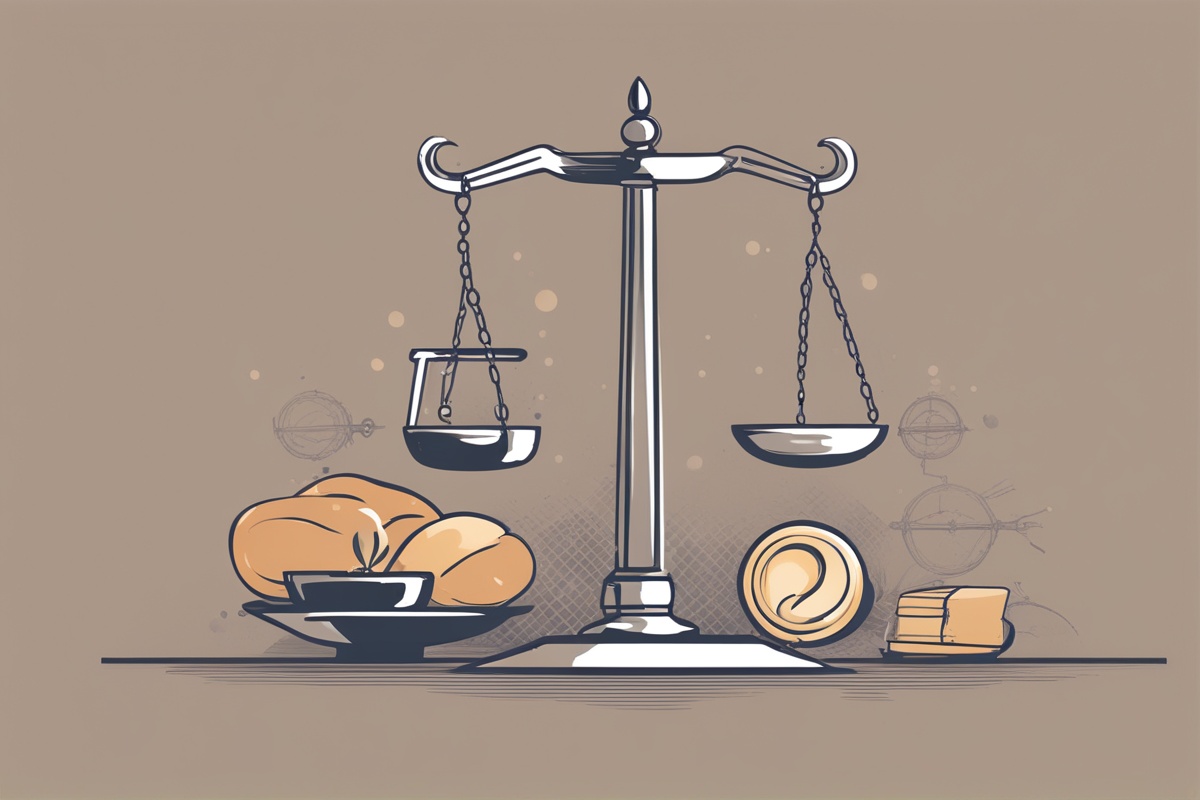Balancing fasting with a professional life can be challenging, especially when working from home. Managing hunger while working remotely is a skill that can make a significant difference in maintaining productivity and well-being during fasting periods. Whether you’re practicing intermittent fasting or observing a religious fast, the unique environment of a home office presents both opportunities and obstacles. This post offers actionable strategies to help you navigate hunger, stay focused, and thrive in your remote work setup while adhering to your fasting goals.
Curbing Hunger During Remote Work
When you’re fasting, the quiet of a home office can sometimes amplify feelings of hunger. Unlike a traditional office where distractions might keep your mind off food, working remotely often means you’re steps away from the kitchen. To curb hunger effectively, start by creating a designated workspace far from food-related triggers. Keep your desk free of snacks or reminders of meals, and focus on setting up an environment that supports your fasting goals. Hydration is also key—drinking water or herbal teas can help suppress appetite and keep you feeling full. Additionally, plan your most demanding tasks during periods when you feel most energized, which can distract you from hunger pangs [1]. For further insights on how fasting impacts health, check out Fasting and Liver Health: Top Benefits.
Staying Focused While Fasting at Home
Maintaining focus during fasting requires intentional strategies, especially in a home setting where distractions abound. One effective approach is to establish a strict schedule that aligns your fasting hours with your work hours. For instance, if you’re following an intermittent fasting plan, try to schedule deep work sessions during your non-eating windows when your mind might be sharper due to ketosis or increased mental clarity, as some studies suggest [2]. Additionally, mindfulness techniques such as deep breathing or short meditation breaks can help redirect your attention from hunger to the task at hand. If you’re curious about the science behind fasting’s effects on cognition, explore Fasting and Brain Health: Science Explained. By structuring your day with purpose, fasting becomes less of a hurdle and more of a tool for productivity.
Managing Cravings in a Home Office
Cravings can be one of the toughest challenges when fasting in a home office. The proximity to your kitchen can make it tempting to break your fast prematurely. To manage cravings, consider keeping yourself occupied with engaging tasks or hobbies during breaks. Listening to a podcast or taking a quick walk around your home can shift your focus. Another tip is to chew sugar-free gum or sip on black coffee, which can trick your brain into feeling satisfied without consuming calories [3]. Imagine discovering a simple routine that helps you overcome midday cravings while staying on track with your fasting goals. What is managing hunger while working remotely if not finding these small, sustainable hacks? For more on fasting benefits, read Fasting Benefits: Boost Health & Energy Naturally.
Balancing Appetite and Remote Tasks
Finding a balance between appetite control and completing remote tasks requires planning and self-awareness. Start by identifying your hunger patterns during fasting—are there specific times of day when you feel most tempted to eat? Schedule lighter tasks or meetings during those windows to avoid overloading yourself. Additionally, ensure you’re getting enough rest, as sleep deprivation can exacerbate hunger hormones like ghrelin, making fasting feel harder [4]. If you’re managing hunger while working remotely, remember that preparation is everything. Meal planning for non-fasting hours can also help—knowing you have a nourishing meal waiting can make fasting periods more bearable. For historical context on fasting practices, see Unveiling the Roots of Religious Fasting Customs.
- Track your hunger cues to anticipate tough moments and plan distractions.
- Use productivity tools like timers to break work into manageable chunks.
- Keep a journal to note how fasting affects your energy and focus levels.
Hunger Control Tips for Telecommuters
For telecommuters practicing fasting, controlling hunger is essential to maintain both work performance and personal health. Here are some targeted tips to help you manage hunger while working remotely:
- Stay hydrated: Drink at least 8–10 glasses of water daily to keep hunger at bay.
- Use fasting-friendly drinks: Opt for black coffee, green tea, or electrolyte water to curb appetite.
- Plan busy work hours: Schedule meetings or intensive tasks during peak hunger times to stay distracted.
- Create no-food zones: Keep your workspace separate from eating areas to avoid temptation.
- Practice mindful breathing: When hunger strikes, take five minutes to breathe deeply and refocus.
These strategies can make a significant difference in how you experience fasting at home. Additionally, understanding how fasting impacts specific health markers can be motivating—learn more at How Fasting Reduces Liver Fat Accumulation Naturally. By integrating these habits, you can turn fasting into a seamless part of your remote work routine [5].
Navigating Fasting and Work Challenges
Combining fasting with remote work comes with unique challenges, such as social isolation or lack of structure, which can make hunger feel more pronounced. One common question is: How do you handle fasting when work-from-home stress triggers emotional eating? The answer lies in building resilience through routine and support systems. Set clear boundaries for work hours to avoid burnout, which can heighten cravings. Connect with online fasting communities or colleagues who share similar goals for accountability. Additionally, if hunger disrupts your workflow, consider adjusting your fasting window to better align with your energy levels [6]. By addressing these challenges head-on, you can create a sustainable balance between fasting and professional responsibilities.
This content is for informational purposes only.
References
- [1] Study on Hydration and Appetite Suppression During Fasting, 2023
- [2] Research on Fasting and Cognitive Performance, 2022
- [3] Article on Craving Management Techniques for Fasting, 2024
- [4] Review of Sleep and Hunger Hormone Regulation, 2021
- [5] Guide to Fasting Strategies for Remote Workers, 2023
- [6] Insights on Balancing Fasting with Work Stress, 2024



